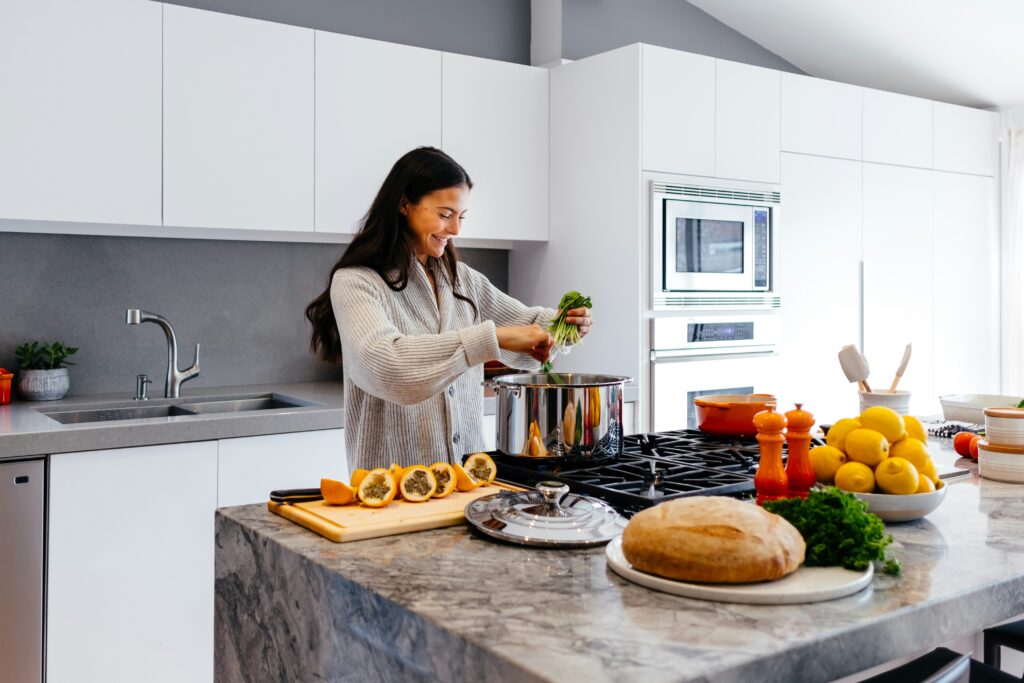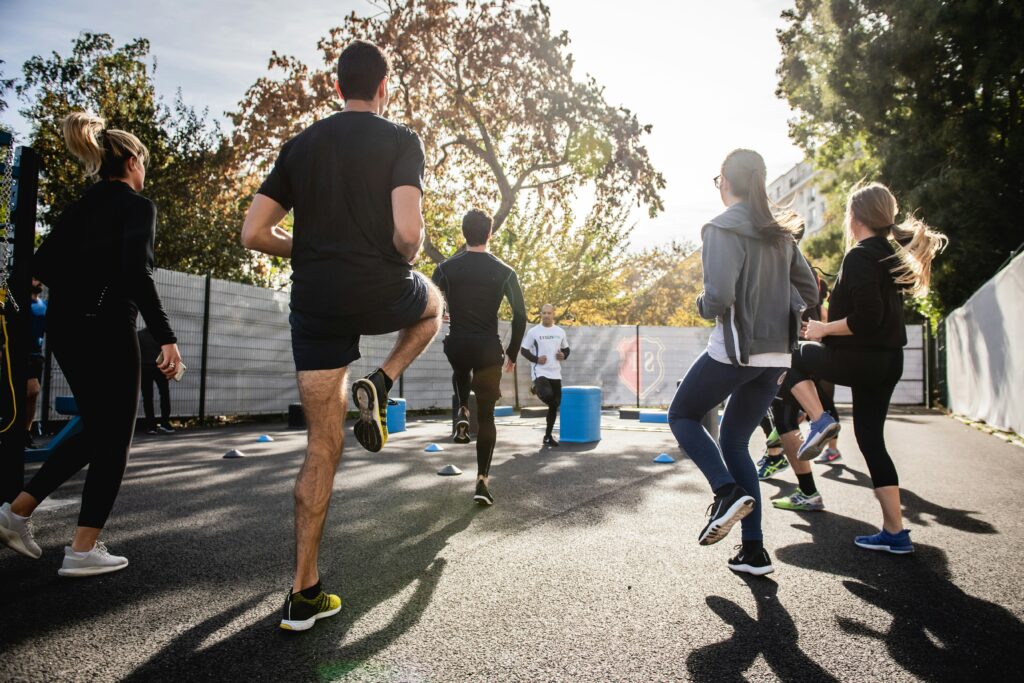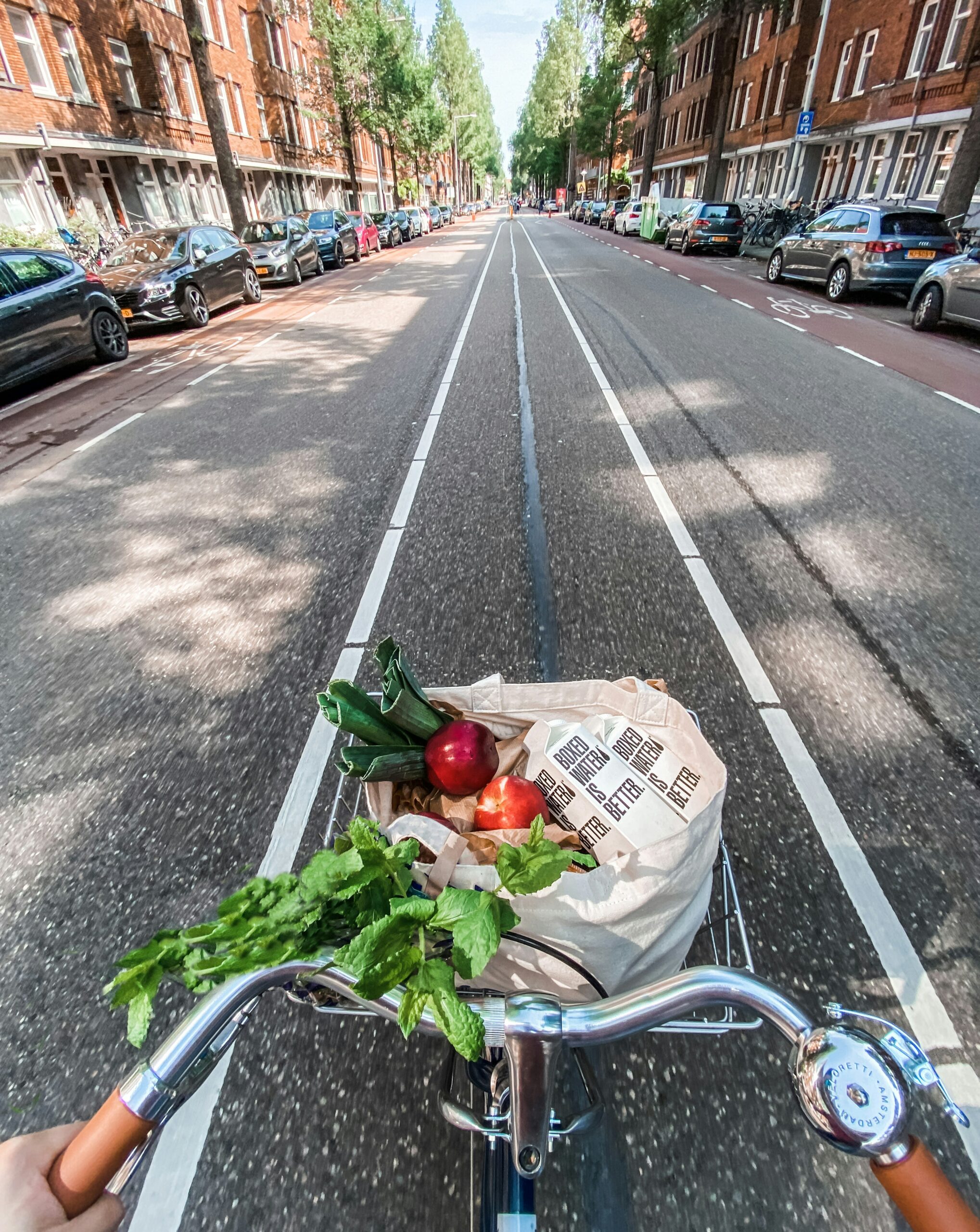
When it comes to health, most people assume they need big lifestyle changes to see results—more gym time, complicated meal plans, or hours of self-care. But what if you could improve your health in just 60 seconds?
The truth is, small habits add up, and quick, intentional actions can have a lasting impact on your energy, digestion, mood, and overall well-being. Whether it’s deep breathing, standing up more, or adding a pinch of cinnamon to your coffee, these micro-habits fit into even the busiest schedule—no excuses.
In this post, we’re diving into science-backed, 1-minute health hacks you can start using today. No fancy equipment, no long workouts—just simple, effective habits that take practically no time but can make a huge difference.
Let’s get started!
Boost Your Energy and Focus
If you often feel sluggish, foggy, or just not as sharp as you’d like, a few quick, intentional actions can help reset your energy and improve mental clarity. These simple 1-minute hacks work with your body’s natural rhythms to keep you feeling alert and focused throughout the day.
1. Take 10 Deep Breaths
Why it works: Deep breathing helps increase oxygen flow, reduce stress hormones, and improve focus almost instantly.
How to do it:
- Sit comfortably and take a slow, deep breath in through your nose for 4 seconds.
- Hold the breath for 4 seconds, then exhale slowly through your mouth for 4 seconds.
- Repeat 10 times to feel a noticeable difference in your energy levels.
Bonus: Try box breathing (inhale for 4 seconds, hold for 4, exhale for 4, hold for 4) to reset your mind in moments of stress.
2. Step Outside for Natural Light
Why it works: Exposure to natural sunlight in the morning helps regulate your circadian rhythm, boosting alertness and improving mood.
How to do it:
- Step outside for at least 60 seconds as soon as you wake up.
- If possible, stand in direct sunlight without sunglasses.
- If you work indoors, take a quick sunlight break midday to reset your energy levels.
Bonus: If natural sunlight isn’t available, use a light therapy lamp in the morning to mimic the effects.
3. Stand Up and Stretch Every Hour
Why it works: Sitting for long periods reduces circulation, slows metabolism, and contributes to stiffness and fatigue.
How to do it:
- Set a timer to stand up every hour for at least 60 seconds.
- Do a quick full-body stretch or march in place to get your blood flowing.
- If possible, walk around for a minute before sitting back down.
Bonus: Try toe touches, arm circles, or a spinal twist to loosen up tight muscles.
4. Splash Cold Water on Your Face
Why it works: Cold water activates the vagus nerve, which helps lower stress, boost energy, and increase alertness.
How to do it:
- Splash cold water on your face for an instant energy boost.
- For even better results, rinse your wrists under cold water—this helps lower body temperature and refresh your system.
💡 Bonus: If you really need to wake up fast, try a 30-second cold shower or ending your regular shower with a cold rinse.
These quick, 1-minute energy hacks are easy to fit into your routine and help you feel more awake, focused, and refreshed throughout the day.

Improve Digestion and Metabolism
Your digestion and metabolism play a huge role in how you feel, how much energy you have, and how well your body processes nutrients. The good news? You don’t need fancy supplements or extreme diets to support them—just a few simple, 1-minute habits can make a big difference.
5. Drink a Glass of Water First Thing in the Morning
Why it works: After 6-8 hours of sleep, your body is dehydrated, which can slow digestion and metabolism. Hydrating first thing in the morning kickstarts your system and helps flush out toxins.
How to do it:
- Keep a glass of water by your bed and drink it as soon as you wake up.
- If plain water isn’t appealing, add lemon for vitamin C or a pinch of sea salt for electrolytes.
Bonus: Drinking water before meals can also aid digestion and prevent overeating.
6. Add Cinnamon to Your Coffee or Tea
Why it works: Cinnamon helps stabilize blood sugar, reduces cravings, and improves insulin sensitivity—all of which support a healthy metabolism.
How to do it:
- Add a pinch (¼ teaspoon) of cinnamon to your morning coffee, tea, or oatmeal.
- Stir well and enjoy the natural sweetness without extra sugar or calories.
Bonus: Try Ceylon cinnamon for the best health benefits.
7. Chew Your Food More Slowly
Why it works: Digestion starts in the mouth, and chewing thoroughly helps your body absorb nutrients more efficiently while preventing bloating and overeating.
How to do it:
- Take a moment to slow down while eating.
- Aim to chew each bite 15-20 times before swallowing.
Bonus: Put your fork down between bites to naturally pace yourself.
8. Eat a Handful of Nuts for a Healthy Snack
Why it works: Nuts provide a combination of healthy fats, protein, and fiber, which keep you full longer and help regulate blood sugar.
How to do it:
- Grab a handful (about 1 ounce) of almonds, walnuts, or pistachios.
- If you need a sweet option, mix in a few dark chocolate chips or dried fruit.
Bonus: Nuts also contain magnesium, which helps support a healthy metabolism.
These 1-minute digestion and metabolism hacks can help you feel lighter, more energized, and more in control of your cravings.
Next, let’s talk about quick stress-relief hacks that improve mental well-being.
Reduce Stress and Improve Mental Well-Being
Stress affects everything—your energy, focus, digestion, and even your immune system. But the good news is that you don’t need an hour-long meditation session to feel calmer. These quick, 1-minute stress-relief hacks can help you feel more centered, grounded, and in control.
9. Do a 60-Second Gratitude Practice
Why it works: Focusing on what you’re grateful for helps shift your mindset, reduce stress, and improve overall happiness.
How to do it:
- Take one minute to think of three things you’re grateful for.
- If you like journaling, write them down in a notebook or on your phone.
- Try to be specific—instead of “I’m grateful for my family,” say “I’m grateful for the way my friend made me laugh today.”
Bonus: Gratitude practices have been linked to lower cortisol levels and better emotional resilience.
10. Close Your Eyes and Listen to a Favorite Song
Why it works: Music triggers positive emotional responses, lowers stress hormones, and can even improve focus.
How to do it:
- Put on a calming or uplifting song that makes you feel good.
- Close your eyes, take deep breaths, and just listen.
- Let your body relax into the rhythm—even if it’s just for one minute.
Bonus: Upbeat songs help with motivation, while slower tempos (60–80 beats per minute) can slow your heart rate and relax your body.
11. Try the 5-4-3-2-1 Grounding Technique
Why it works: This proven anxiety-reduction exercise helps bring your mind back to the present when you’re feeling overwhelmed.
How to do it:
- Name 5 things you can see.
- Name 4 things you can touch.
- Name 3 things you can hear.
- Name 2 things you can smell.
- Name 1 thing you can taste (or think of your favorite flavor).
Bonus: This is a great trick for calming anxiety fast, especially before a big meeting or stressful situation.
12. Massage Your Temples or Neck for 60 Seconds
Why it works: Gentle self-massage releases tension, improves circulation, and helps relax tight muscles caused by stress.
How to do it:
- Use your fingertips to massage your temples in slow, circular motions.
- Try massaging the back of your neck where tension builds from screen time and stress.
- Focus on deep breathing as you do it.
Bonus: If you have a little extra time, massage your hands or feet—both are full of pressure points that help with relaxation.
These simple, 1-minute stress relief hacks can help you reset your mood and reduce anxiety anytime, anywhere.
Next, let’s move on to quick hacks for improving heart health and circulation.

Support Heart Health and Circulation
Your heart works 24/7, pumping blood and oxygen to keep your body functioning. But sitting too much, stress, and poor circulation can put extra strain on your cardiovascular system. The good news? Just 60 seconds of movement or small habit changes can improve circulation and support heart health.
13. Do 60 Seconds of Jumping Jacks or Squats
Why it works: A quick burst of movement increases heart rate, improves circulation, and helps reduce stiffness from sitting too long.
How to do it:
- Do jumping jacks, squats, high knees, or marching in place for one full minute.
- If high-impact moves aren’t for you, try toe taps, arm circles, or slow squats.
Bonus: This can wake you up better than coffee and give you an instant energy boost.
14. Laugh (Even if You Fake It!)
Why it works: Laughter lowers blood pressure, improves circulation, and releases feel-good endorphins that relax your body.
How to do it:
- Watch a funny video, read a joke, or fake laugh until it turns real.
- Laughter expands blood vessels, helping more oxygen flow through your body.
Bonus: Studies show that even fake laughter has heart health benefits—your brain doesn’t know the difference!
15. Take a Few Slow, Deep Breaths Before Eating
Why it works: Eating while stressed activates the fight-or-flight response, which raises blood pressure and affects digestion. Taking deep breaths helps your body relax so you can absorb nutrients better.
How to do it:
- Before you take your first bite, close your eyes and inhale deeply for 5 seconds.
- Hold the breath for 2-3 seconds, then exhale slowly for 7 seconds.
- Repeat 3-4 times to activate your body’s “rest-and-digest” mode.
Bonus: This is also great for reducing emotional eating and improving mindful eating habits.
These quick, heart-healthy habits can help improve circulation, lower stress, and support overall cardiovascular health.
Next, let’s move on to quick tips for improving sleep and relaxation.
Improve Sleep and Relaxation
Getting quality sleep is one of the most important things you can do for your health, yet many people struggle to fall asleep or wake up feeling refreshed. The good news? Just 60 seconds of the right habits before bed can improve your sleep quality and help you wake up feeling more rested.
16. Dim Your Lights One Hour Before Bed
Why it works: Bright artificial light—especially blue light from screens—disrupts melatonin production, making it harder to fall asleep.
How to do it:
- About an hour before bed, switch to lamps, warm-toned bulbs, or candlelight instead of overhead lights.
- If you must use screens, turn on night mode or use blue light-blocking glasses.
Bonus: Using salt lamps or soft amber lighting helps mimic natural sunset light and signals your brain to start winding down.
17. Set Your Phone to Night Mode
Why it works: Screens trick your brain into thinking it’s still daytime, delaying melatonin release and keeping you wired.
How to do it:
- Go to your phone’s display settings and turn on “Night Shift” (Apple) or “Night Mode” (Android) to reduce blue light.
- Set your phone to Do Not Disturb to avoid late-night notifications waking you up.
Bonus: If possible, charge your phone outside your bedroom to eliminate screen temptation altogether.
18. Try a 60-Second Bedtime Stretch
Why it works: Light stretching before bed releases muscle tension, reduces stress, and signals to your body that it’s time to relax.
How to do it:
- Stand or sit on your bed and do gentle neck rolls, forward folds, or child’s pose.
- If you’re feeling tight, hold a stretch for 15-30 seconds while taking slow, deep breaths.
Bonus: Pair your stretches with slow, deep breathing to help activate your parasympathetic nervous system (your body’s “rest and relax” mode).
Better sleep doesn’t require drastic changes—just small, intentional habits that signal to your body that it’s time to wind down. By dimming lights, reducing screen time, and stretching before bed, you can improve sleep quality and wake up feeling refreshed and energized.
Improving your health doesn’t have to mean hours at the gym, expensive supplements, or complicated routines. Small, consistent actions add up, and these 1-minute health hacks prove that even the simplest habits can make a difference.
From boosting energy with deep breathing, to improving digestion with mindful eating, to relaxing your body for better sleep, these quick, science-backed habits fit into even the busiest day.
The best part? You don’t have to do them all at once. Pick one or two that resonate with you and try them today. Over time, these small shifts will lead to noticeable improvements in your well-being.
Which of these health hacks will you start with? Let me know in the comments!

Leave a Reply
You must be logged in to post a comment.